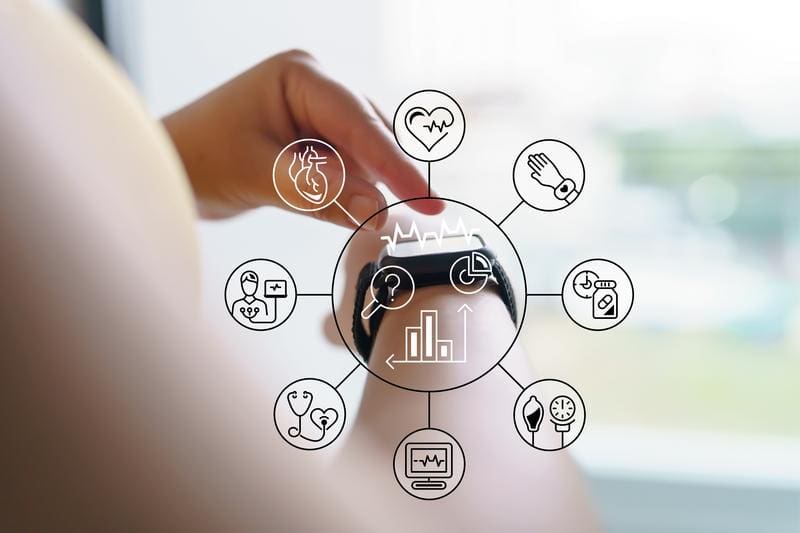New statistical methods for digital health data
The digitalization of medicine opens up new opportunities in prevention, diagnosis and therapy, but poses challenges for researchers due to complex, incomplete and individual data from wearables, health apps or mobile sensors. Eleonora Carrozzo from the Salzburg Research Forschungsgesellschaft is therefore developing new statistical methods that are specifically tailored to such data. The focus is on cardiovascular care, but also benefits from research with small case numbers such as rare diseases.
Through continuous data collection on heart rate, movement or blood pressure, digital technologies enable individualized patient care, especially for cardiovascular diseases. However, the analysis is difficult due to high complexity, outliers, missing values or low samples. Carrozzo aims to use nonparametric methods to enable well-founded statements that do not require assumptions about data distributions and are suitable for incomplete, high-dimensional or irregular data.

The procedures close methodological gaps and support medical staff in evaluating digital health measures. They are provided as easy-to-use R software packages that are used in research, clinical practice, and evaluation studies, even for complex designs with multiple groups, small samples, or many measurement points in time.
The project “Evaluating digital health interventions with complex designs” is funded by the Elise Richter Programme of the Austrian Science Fund FWF.
Eleonora Carrozzo is a postdoctoral researcher at Salzburg Research and works in the EXDIGIT program at the Paris Lodron University Salzburg. Previously, she worked at the Ludwig Boltzmann Institute for Digital Health and Prevention. She received her PhD in Management and Engineering from the University of Padua in 2016, where she obtained a Master’s degree in Statistics. Her areas of expertise include biostatistics, nonparametric statistics, statistical methods in medical research, and data science in digital health.
PREVIEW: The German Congress of Laboratory Medicine (DKLM) 2025 promises exciting insights into the interface between science and clinical practice. Under the motto “Science for Precision Medicine”, the German Society for Clinical Chemistry and Laboratory Medicine (DGKL) and the Umbrella Association for Technologists and Analysts in Medicine Germany (DVTA) invite experts from research, clinics and industry to meet on October 23 and 24 at the Congress Center Leipzig (CCL). The two-day event is aimed at laboratory physicians, biomedical analysts and decision-makers to discuss current advances in diagnostics and strengthen networks. The MedLabAwards ceremony will take place on 22 October in the Salles de Pologne.
Editor: X-Press Journalistenb├╝ro GbR
Gender Notice. The personal designations used in this text always refer equally to female, male and diverse persons. Double/triple naming and gendered designations are used for better readability. ected.




